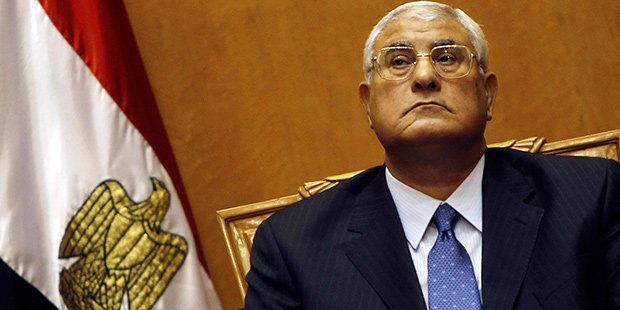 Former President Adly Mansour will return to his position as the head of the Supreme Constitutional Court (SCC), deputy head of SCC Maher Samy announced at President Abdel Fatah al-Sisi’s Sunday inauguration.
Former President Adly Mansour will return to his position as the head of the Supreme Constitutional Court (SCC), deputy head of SCC Maher Samy announced at President Abdel Fatah al-Sisi’s Sunday inauguration.
Some politicians had called on Mansour not to return to the SCC because he would be deliberating lawsuits against the very decrees he issued as president, such as the 2013 protest law and the decree prohibiting third party challenges against state contracts.
A judicial source inside the Board of State Commissioners, an SCC department, told Reuters June 1 that Mansour would not rule in any of the cases challenging legislation he adopted as president.
Assi told Hayat TV that only 2 million voted on the third day of the presidential elections, constituting approximately 10 percent of total votes cast.
“If we had wanted to increase turnout, we could have let nine million voters outside of their districts vote at any polling station,” Assi said.
Nine polling stations were annulled due to voting irregularities, and ballots in some polling stations were recounted, Assi added.
HPEC previously announced it would not let Egyptian expatriates vote by mail or let citizens vote outside of their districts to ensure complete transparency of the polling and avoid its annulment.
The HPEC announced May 27 it extended the voting for a third day to May 28 to let people vote at their home polling stations.
He defended HPEC’s extension of the polling; a decision that drew criticism from Sisi and former presidential candidate Hamdeen Sabbahi.
“This unpredictable act of the [H] PEC, while not against the law, caused unnecessary uncertainty in the electoral process,” the European Union Election Observation Mission said on May 29.
Assi attributed the decision to hot weather, the fact that some Egyptians fasted on May 27 because it coincided with a religious occasion, high turnout in the evening, and that many voters outside of their districts were not able to vote.



